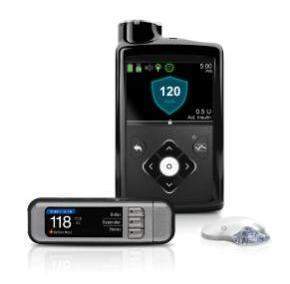
The system has been approved to treat people with type 1 diabetes aged seven years and older with ongoing studies to expand the indication to additional patient populations.
Medtronic’s advanced SmartGuard technology and Guardian Sensor 3 continuous glucose monitor work together to self-adjust basal insulin delivery to provide protection against both highs and lows, enabling to improve time in range.
SmartGuard technology is a smart algorithm, which can adjust to fluctuating glucose levels and automatically self-adjust background insulin delivery to stabilize them.
In addition, the system features Ascensia Diabetes Care’s Contour Next Link 2.4 blood glucose monitoring system.
Subject to local regulatory requirements, the company will start the marketing of the MiniMed 670G system in select countries in Europe in the autumn of this year.
Medtronic diabetes group’s advanced insulin management division president Alejandro Galindo said: “We’re proud to introduce our most advanced SmartGuard Auto Mode algorithm outside of the United States, which not only helps to prevent lows but works to drive Time in Range – a most important measure of the effect of diabetes management on a patient’s glucose levels – by decreasing time in hyperglycemia.
“The MiniMed 670G system advances our ability to automatically suspend and resume insulin delivery to the next level by automating self-adjusting basal insulin delivery every 5 minutes based on sensor glucose values – providing the most advanced algorithm available to deliver leading clinical outcomes.”
Separately, Medtronic announced that MiniMed 670G system’s real-world data demonstrated improved time in range and reduced lows and highs across all patient groups, including a 41% time in range improvement for previous MDI patients.


